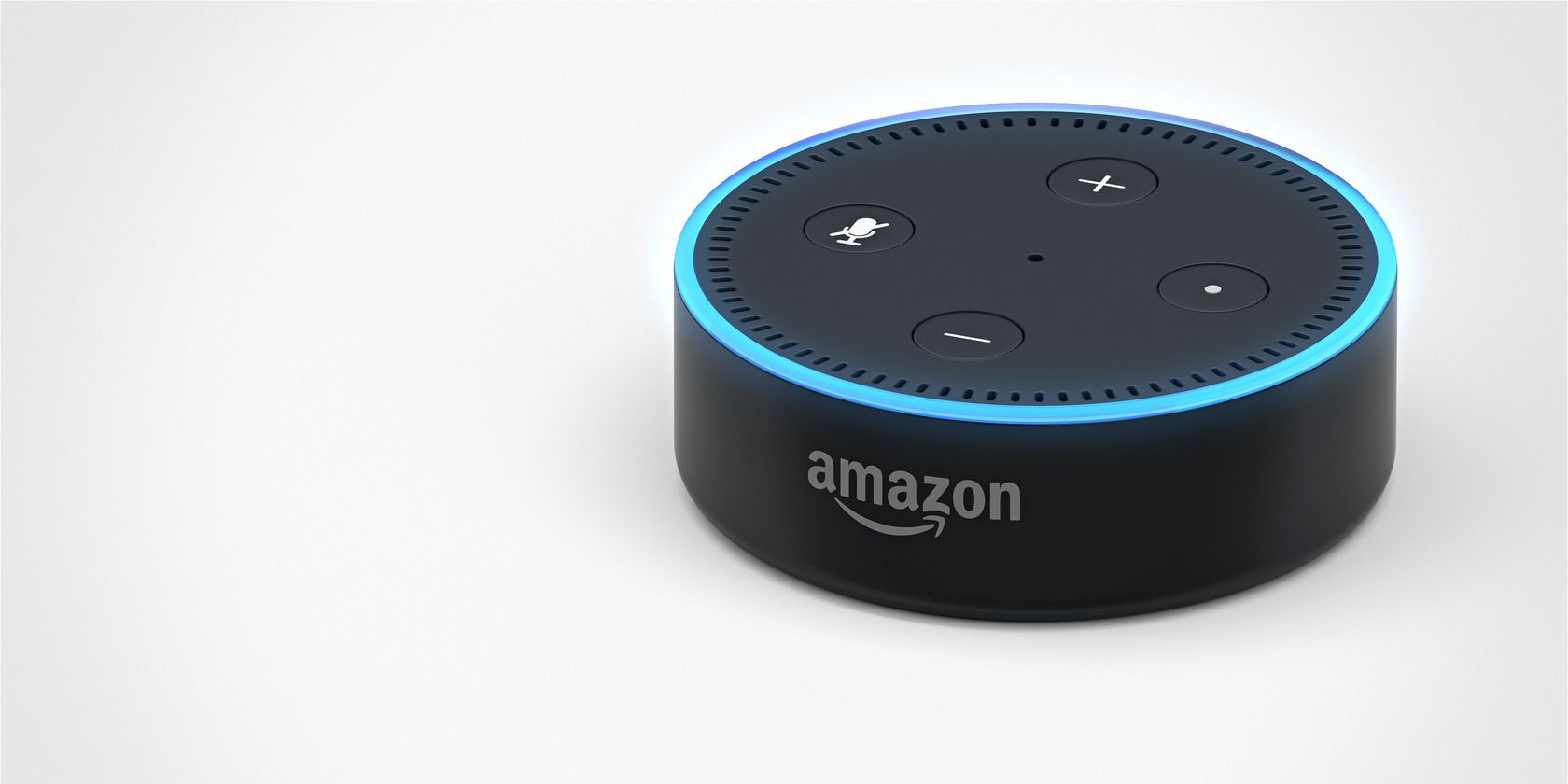
Key Takeaways
- Your Amazon Echo continuously listens for a wake-up word to activate and start processing voice commands.
- Alexa records and collects enough data to improve device accuracy, but this does raise some privacy concerns.
- You can protect your privacy by stopping Alexa from listening, deleting voice recordings, and choosing how long recordings are saved for.
Ever since Amazon released the first Echo, users have been wondering whether the device listens too much. No one wants their smart speaker infringing on their privacy by recording everything they say, but is this really what Amazon's range of Echo speakers, and Alexa, do?
Is Alexa Always Listening?
Alexa-enabled smart speakers work by continuously listening out for a wake-up word that triggers Alexa to begin recording. The default trigger is "Alexa," but there are other options to choose from. Currently, the Alexa app lets you choose from the following wake words:
- "Alexa"
- "Amazon"
- "Computer"
- "Echo"
- "Ziggy"
- "Hey Santa" (over the holidays)
Once Alexa hears the wake-up word, she'll look for a command to complete. That might include playing music, opening an app, or providing information. But outside of some wake word activations, is Alexa still listening?
According to Amazon, a user can always tell if Alexa is listening to a request, as the Echo device's ring light will turn on or the Echo will make a sound. But we likely say a lot more than a few Alexa requests every day, and much of the concern surrounds Alexa listening to users' private conversations.
The quote below (taken from the previously mentioned Amazon help page) is what Amazon has to say about Alexa's listening habits:
Alexa is a part of your life only when you ask Alexa to be. By default, Alexa begins listening after your Echo device detects the wake word, so Alexa does not listen to your personal conversations.
So, if what Amazon says is true, Alexa device users have nothing to worry about. Unfortunately, things aren't as cut-and-dried as this.
A study conducted by Northeastern University found that Amazon smart speakers, along with other smart speaker brands, can be accidentally activated to respond up to 19 times per day to words similar to their wake-up words.
It might only take a moment for something to sound like "Alexa", or your chosen wake word, but if Alexa hears enough of these similar words, she's bound to be triggered by accident. Of course, this puts you at risk of being listened to by Alexa without having intentionally activated her.
Because your Echo device communicates your voice requests to Amazon's cloud computers for processing, Alexa may send a non-request audio clip to be processed, putting your private conversations at risk. This is especially the case if you have a more commonly-used wake word, such as "Computer".
Is Alexa Recording All of Your Conversations?
There's a difference between Alexa listening to random conversations by accident and recording them. Alexa is always listening for the correct wake-up word, but recording the conversations being listened to would present a whole new privacy issue.
Even if Alexa doesn't save everything you say, it does collect enough data to understand your voice. Amazon claims that it uses this information to make its devices better and more accurate. While it's true that the more data a device has, the better it gets at understanding your requests, some people just want to be sure they are in control of their own privacy and security.
In 2016, The Information reported that Arkansas police had asked Amazon for data from an Echo device in order to help prosecute a suspect. While it is understandable that police need help in investigating certain cases, it does suggest that smart speakers—including Amazon Echo devices—gather large amounts of data.
In a similar incident from 2018, the Kiro 7 TV station reported that an Amazon Echo device had recorded a couple's conversation and sent it to one of the husband's employees. Amazon has since stated that this was an extremely unusual set of circumstances, and that nothing like this should ever happen again.
Things got more troubling in 2019 when it was reported that thousands of Amazon staff listen to users' voice clips a day. In a Time article, it was stated that user voice recordings are "transcribed, annotated and then fed back into the software as part of an effort to eliminate gaps in Alexa’s understanding of human speech and help it better respond to commands."
It was also stated that staff listen to "as many as 1,000 audio clips per shift," which would mean that humans are accessing huge swathes of voice recordings. However, this is done to train Alexa's software, developing it so that it can better understand human speech.
How to Protect Your Privacy Around Alexa
With all of this in mind, it's understandable that some people may want to limit their exposure to smart speakers and other devices that are listening out for wake words. Luckily, there are several things you can do to stop your smart speakers from listening when they shouldn't be.
1. Stop Alexa Listening Completely
The simplest way to prevent Alexa from recording anything is by pressing the Microphone button located on the top of your Echo device. This stops Alexa from listening for her wake-up words.
By pressing the Microphone button, you can still use Alexa's various features, but it won't listen to its surroundings until you unmute the device.
2. Delete Your Voice Recordings From Alexa's History
To make Alexa delete your voice recordings, you can use three commands:
- "Alexa, delete what I just said"
- "Alexa, delete everything I said today"
- "Alexa, delete everything I've ever said"
If you want to delete them manually or delete specific recordings, go to Settings > Alexa Privacy > Review Voice History. Then, you will tap All History > Delete All My Recordings.
You can view voice recordings from varying time periods, such as today, yesterday, and the last seven days, by filtering your search. You can also filter by devices and Alexa profiles to narrow things down a little.
3. Choose How Long to Save the Recordings For
Alexa keeps a temporary recording of what you say. If you do not want recordings to be stored in the cloud, you can choose to delete them once they are sent to your Alexa application on your smartphone.
You can set this feature up by going to Settings > Alexa Privacy > Manage Your Alexa Data > Choose how long to save voice recordings.
Alexa will give you the option to save voice recordings for three months, 18 months, or until you choose to delete them. You can also choose not to save any voice recordings at all from this menu.
4. Revoke Permissions From Alexa Skills
Alexa Skills are third-party apps that improve Alexa's capabilities, whether it be interacting with different smart home devices or playing games.
However, after enabling these Alexa Skills, they often require access to personal information such as your address and mobile number in order for them to work properly.
If you change your mind after installing the Skill on your device, then you can remove their permissions easily by going into Settings within the app.
Go to the Alexa Privacy settings page, and select Manage Skill Permissions. From here, you can choose the data type you want to manage access to. Press the drop-down menu to the right of these, and then use the toggle to remove the permission.
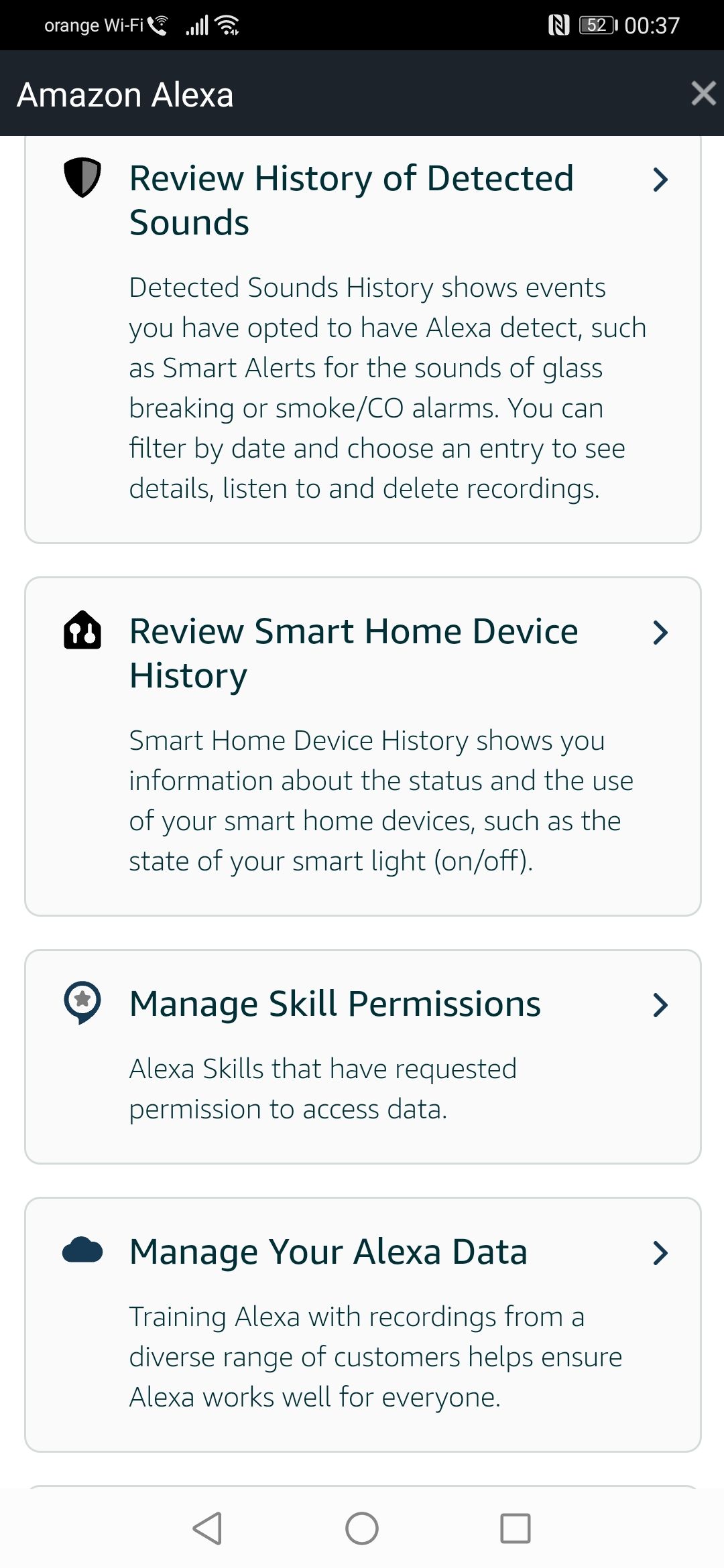
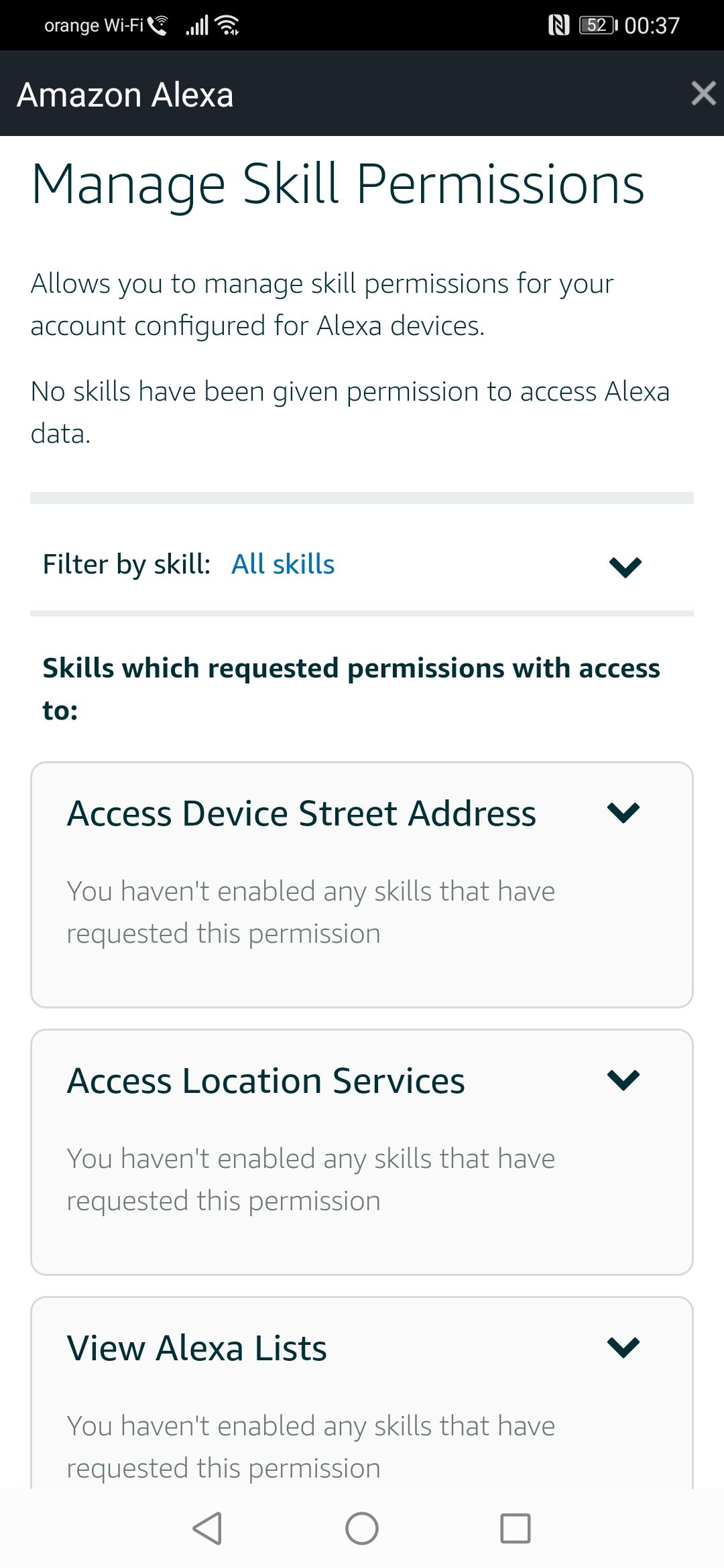
Here, you can search for specific skills, or view which skills have access to various kinds of your personal data. You can also deactivate ads from third-party skills, or reset your advertising ID.
If you're still concerned about Alexa listening to you despite making privacy changes to your app, consider unplugging your device completely when you aren't using it.

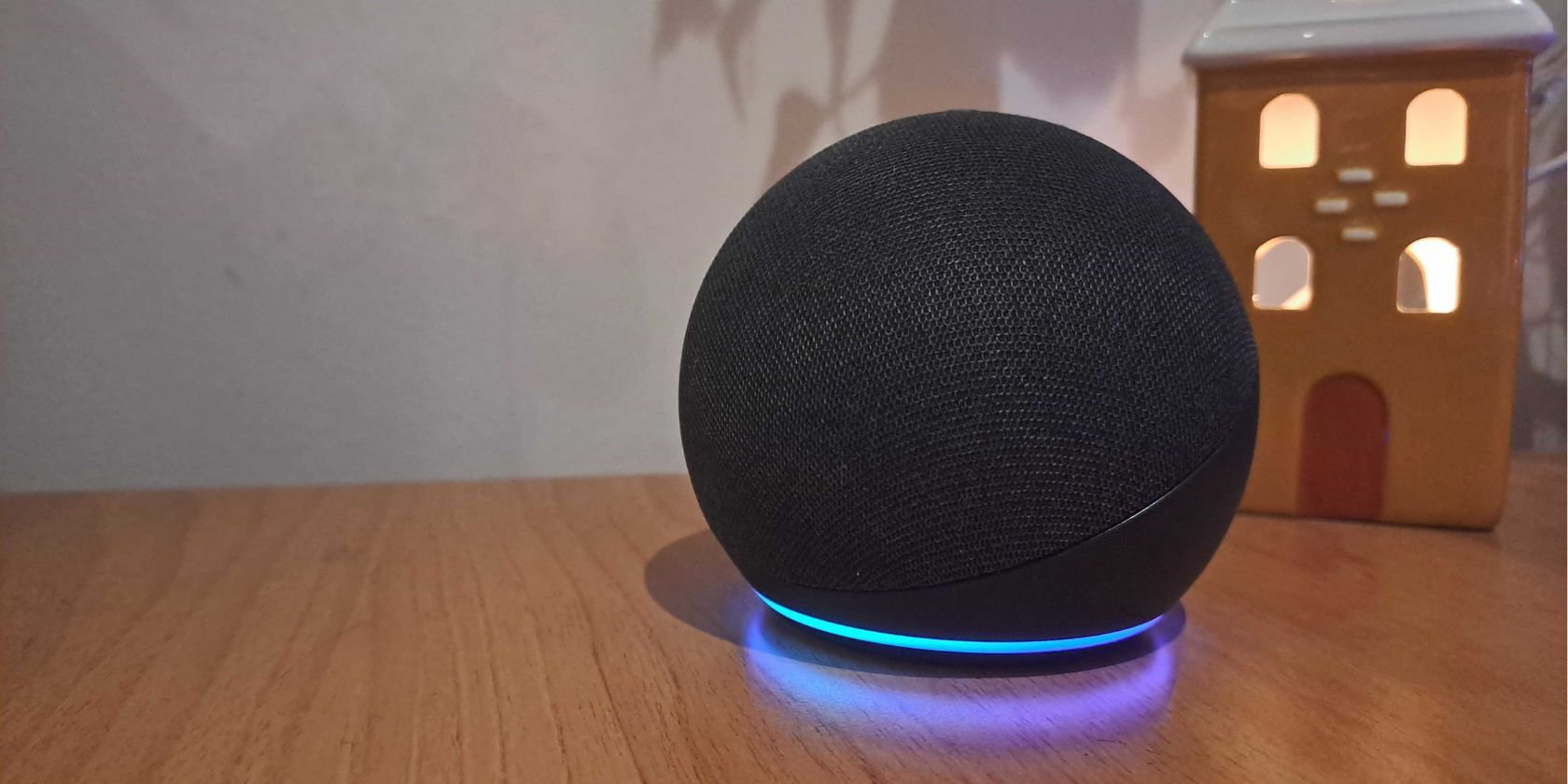
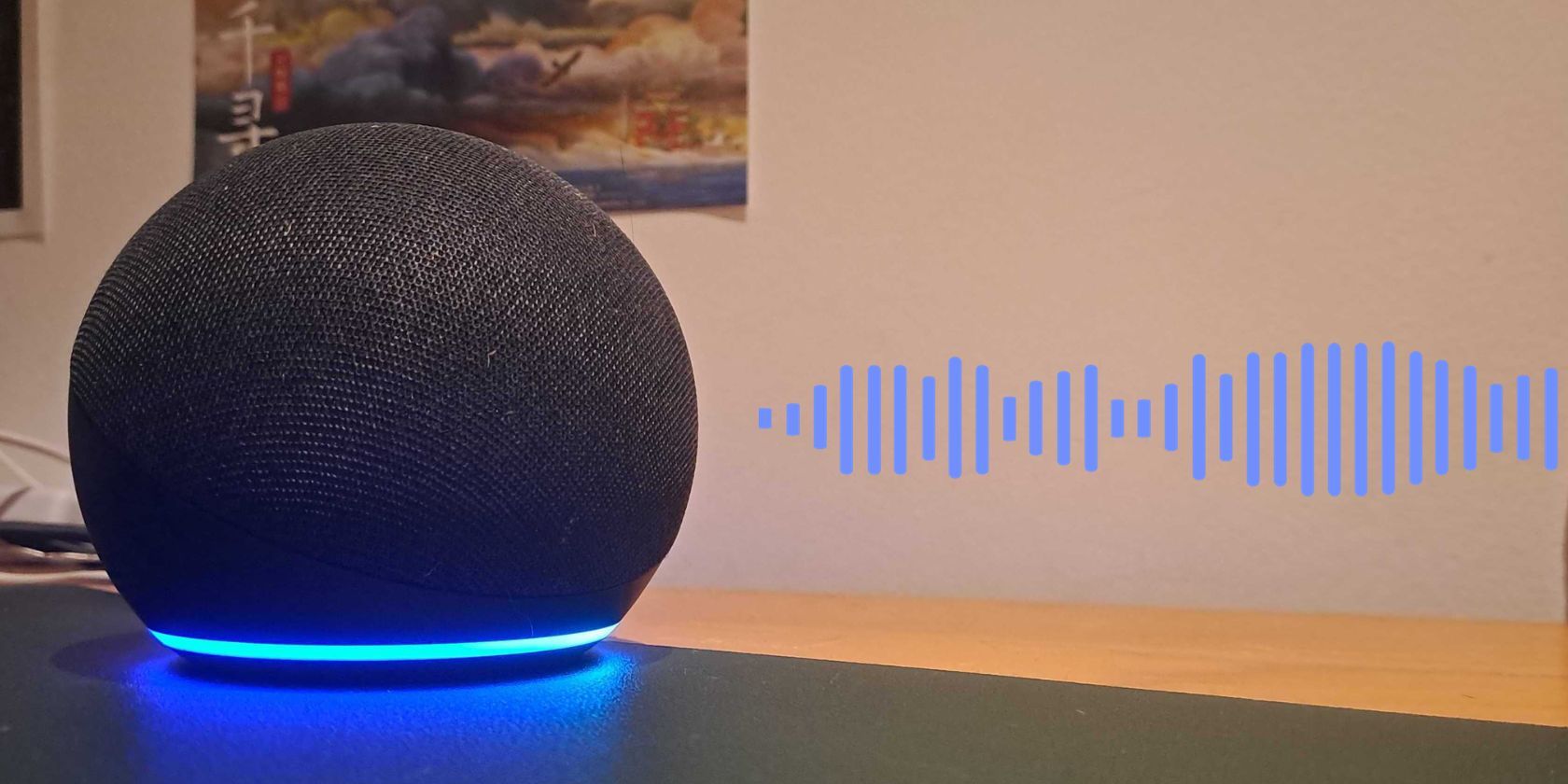
Post a Comment